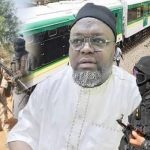The Federal Government has reintroduced history as a stand-alone subject in the basic education curriculum in Nigeria 13 years after its abolition.

Nigerian Govt Reintroduces History In Basic Education
The Minister of Education, Malam Adamu Adamu, disclosed this on Thursday while speaking in Abuja at the inauguration ceremony of the reintroduction of teaching of history and training of history teachers at basic education level.
Adamu, who was represented by the Minister of State for Education, Goodluck Opiah, said that a total of 3,700 history teachers had been shortlisted for the first round of training for enhanced teaching of the subject.
He expressed worry about the way the national cohesion was being threatened with the country retreating into primordial sentiments as a result of lack of knowledge of the evolution of Nigeria following the removal of history from the basic education curriculum.
The News Agency of Nigeria (NAN) reports that history was removed from primary and secondary education curriculums from the 2009/2010 academic session.
However, the minister ordered the reintroduction of the subject in 2019.
“History used to be one of the foundational subjects taught in our classroom but for some inexplicable reasons, the steam of teaching and learning was abolished.
“As a result, history was subsequently expunged from the list of subject combination our students could offer in both external and internal examinations compared to the subjects that were made compulsory at basic and secondary levels in Nigeria.
“This single act no doubt relegated and eroded the knowledge and information that learners could otherwise have been exposed to. It was a monumental mistake and have already started seeing its negative consequences
“The loss created by the absence of this subject has led to a fall in moral values, erosion of civic values, and disconnect from the past.
“More worrisome was the neglect of the teaching of this subject at basic and post basic levels of education which invariably eroded the knowledge of the evolution of Nigeria as a country,” he said.
The minister added that the focus of the re-introduction was the training and retraining of teachers in order to enhance their capacity development would lead to the mastery of the subject.
He said teachers would be provided with the requisite skills needed to teach the subject.
Meanwhile, the Executive Secretary, Universal Basic Education Commission (UBEC), Dr Hamid Bobboyi, said a total of 3,700 history teachers had been selected from the 36 states of the federation and Federal Capital Territory (FCT) for training.
He added that the selection was done on pro-rata basis, 100 teachers each from a state and FCT, stressing that this would equip them with the necessary skills to teach the subject, especially with the modification of the subject content.
Bobboyi said following the directive by the minister for history to be restored as a subject in schools, the commission and Nigerian Educational Research and Development Council (NERDC), swung into action which led to the flag-off.
Also, the Sultan of Sokoto, His Eminence, Muhammadu Abubakar, in his goodwill message, said Nigeria is still evolving and striving to achieve nationhood.
Abubakar said that the rich history of the country’s diverse constituents could be explored and exploited to serve as an effective tool for nation-building.
He appealed to traditional rulers as custodians of the nation’s rich culture, traditions and values, and indeed, all Nigerians to support the bold step taken by the government.
“We owe it a duty to encourage research for the documentation of the history of our people and should be forthcoming in granting access to historical records in our custody,” he said.
This comes a few days after Nobel Laureate, Professor Wole Soyinka said the removal of history from the Nigerian schools by the government cannot erase memories of the Biafran war.


